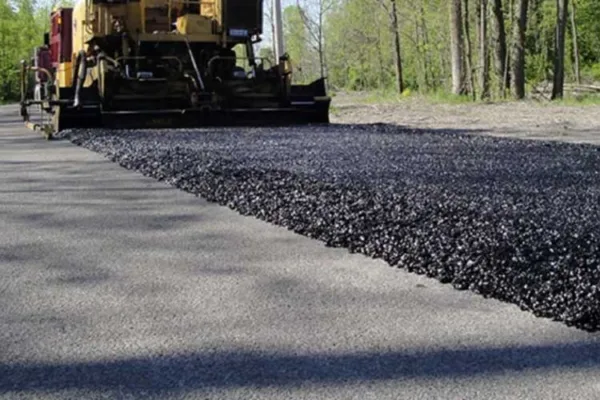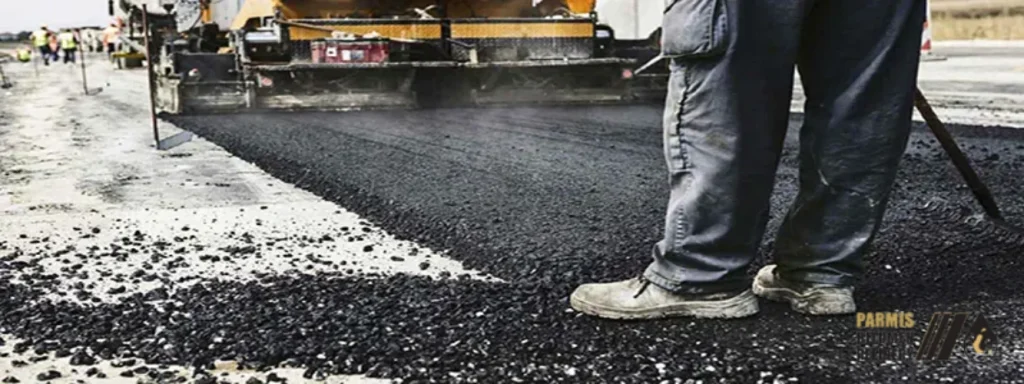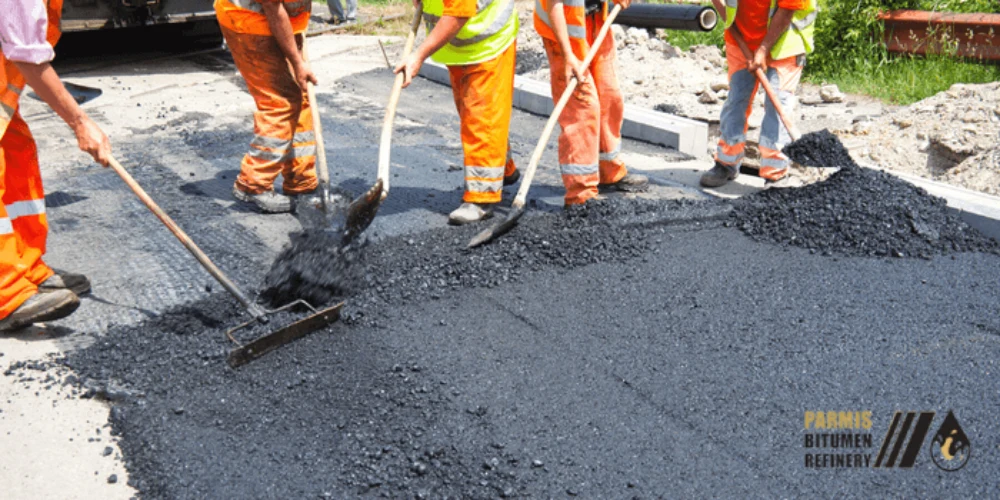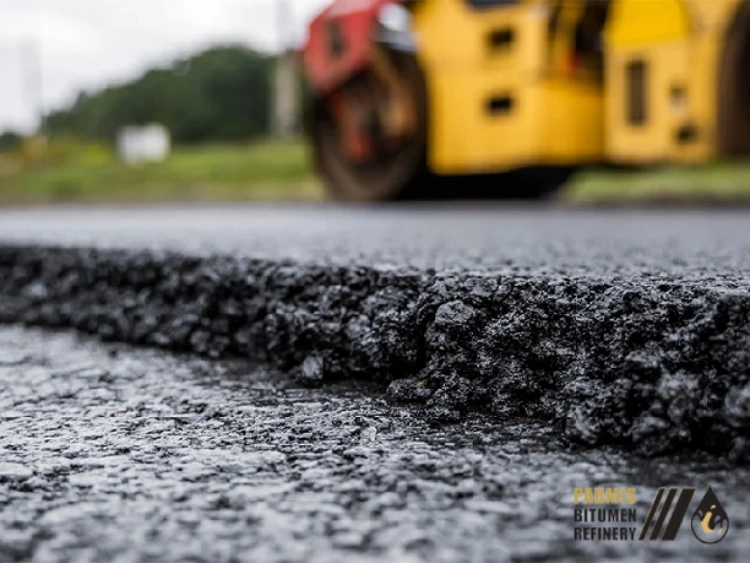Where building roads entails building hard and durable roads, material use is most essential. Bitumen is among the most essential materials to be used to build roads. Bitumen is a binder that is used to bind aggregate together to produce asphalt, resulting in hard solid, and smooth roads. But what constitutes good quality bitumen, and why is it so important to apply on roads? In this review, we are going to discuss everything you need to know about high-quality bitumen to be used in road construction.
What is High-Quality Bitumen?
Bitumen is a black-colored, viscous liquid and adhesive substance derived from the distillation of crude oil. Bitumen is predominantly used as an asphalt binder on roofs, waterproofing, and road surfacing. The properties of bitumen that make it high-quality are strength, elasticity, and hardness to roads. With high-quality bitumen, they can sustain heavy traffic, remain stable with varying climatic conditions, and sustain heavy usage and wear and tear.
- Good quality bitumen is associated with:
- High adhesion to aggregates
- High water resistance
- Weather resistance of any type
- Sufficient elasticity
- Heat deformation resistant
All these characteristics help the pavement last for a long time despite heavy traffic, harsh weather conditions, and intense usage.

Why High-Quality Bitumen in Road Construction?
High-quality bitumen used in road construction gives roads:
- Long-Living and Resistant: The aggregates stick well to the high-quality bitumen, so the pavement is resistant.
- Weather-Resistant: Rain, sunlight, and excess heat that lead to potholes and cracks are resisted by it.
- Cost-Effective: Although high-quality bitumen is costly to buy, its long lifespan will keep the maintenance cost low in the long term.
- Safe and Comfortable: A smooth road surface improves car handling, avoiding accidents and guaranteeing comfortable driving.
Types of Bitumen Employed in Road Construction
Traffic and climatic conditions dictate types of bitumens employed. The most prominent types are:
1. Penetration Grade Bitumen
- graded in terms of penetration value, i.e., measure of hardness and viscosity.
- applicable to flexible pavements in moderate climatic conditions.
2. Viscosity Graded Bitumen (VG)
- graded by viscosity to deliver the same performance at various temperatures.
- The usual grades are VG-10, VG-20, VG-30, and VG-40.
3. Polymer-Modified Bitumen (PMB)
- polymer modified to improve elasticity, strength, and durability.
- ideal for loaded roads and harsh weather conditions.
4. Cutback Bitumen
- dissolved in a solvent to facilitate easy application at low temperatures.
- applied on cold or wet surfaces.
5. Emulsion Bitumen
- Water emulsion to allow the application process in a simplified manner without heat.
- Generally used on service and maintenance work.

Choosing a Hard Bitumen for Pavement
- For long-term road surfaces that will be able to endure traffic stress and pressure from weather, the following are recommended:
- Polymer-Modified Bitumen (PMB): Offers extra strength and heavy traffic resistance.
- Viscosity Graded Bitumen (VG-30 and VG-40): Withstands heat deformation.
Penetration Grade 60/70: Has strength and flexibility in resisting premature aging.
Asphalt Paving with High-Degree Bitumen
High-quality bitumen guarantees the construction of flat, strong, and safe asphalt roads by the following process:
- Mixing: Hot bitumen is blended with aggregates to form asphalt.
- Placing: Hot mix is laid on a prepared roadbed by the assistance of paving machines.
- Compacting: Heavy rollers pass over the mixture to force air spaces out and form a tight, smooth surface.
- Hardening and Curing: Asphalt hardens to form hard and durable pavement.
This process enhances the performance of pavements through added binding, elasticity, and cracking resistance.
Related article: Penetrating bitumen and its application
Bitumen in Asphalt Mix Design
Quality bitumen is an important aspect of the durability and performance of asphalt roads. Some of these are:
- Viscosity and Penetration Grade: Enable workability and load-carrying capacity.
- Heat Susceptibility: Should be heat softening and cold cracking resistant.
- Aggregate Compatibility: Good adhesion creates a stable and durable mix.
- Anti-Aging Resistance: Anti-oxidation properties prevent brittleness.
- Asphalt mixture in proper usage provides a consistent asphalt for long-lasting roads.

Selecting High-Quality Bitumen
Selection of good quality bitumen is a critical step in building hard and durable roads. The most prominent key points are addressed below:
Climatic Conditions
In the case of hot weather condition, utilize lower penetration grade bitumen as it will not be prone to easy softening. In the case of cold weather condition, utilize higher penetration grades as they are elastic in nature and will not develop cracks.
• Traffic Load
High-way highways and highways require Polymer-Modified Bitumen (PMB) or viscosity-graded bitumen (VG-30 or VG-40) since they are more able to resist deformation and are longer-lasting. This makes the pavement more resistant to heavy and frequent traffic loading.
• Aggregates Compatibility
The bitumen must be compatible with the aggregates for appropriate adhesion and stripping resistance. Aggregate-bitumen compatibility tests ensure stability and long life of the pavement.
• Temperature and Viscosity Susceptibility
Select bitumen with sensitivity to high temperature and viscosity so that it will respond equally at various temperatures. This prevents distresses such as heat rutting or cold cracking.
• Resistance to Aging
Select bitumen which is high in anti-oxidation and anti-aging since exposure to oxygen and UV can cause hardening and brittleness. Anti-aging additives can prolong life by toughening the bitumen.
• Consultation and Standards
Adhere to global specifications such as ASTM and AASHTO and take the advice of engineers while choosing the finest quality high bitumen for particular road construction work.
Routine Challenges of Bitumen in Road Construction
Bitumen is great for road construction, but it has some issues which will affect the performance of the pavement as well as its lifespan:
- Rutting: Rutting is the state of pavement deformation caused by overuse, especially during hot weather when the bitumen is softened. Polymer-modified bitumen will not allow that to happen and will react well during hot weather as well.
- During Temperature Fluctuations: It leads to stress and cracking. Low-temperature cracking happens at low temperature, and traffic fatigue cracking because of heavy traffic for an extended duration of time. We can reduce the risk by using appropriate penetration grade and mix design.
- Aging and Oxidation: Bitumen hardens and stiffens with aging and when exposed to sunlight and oxygen in the long term. This causes cracking and loss of flexibility. Such a process could be slowed down with sealing and anti-aging chemicals.
- Water Damage and Stripping: Water stripping-off leads to the failure of bond between aggregate and bitumen. Water-resistant aggregates and maintaining high quality at manufacturing can reduce such problems.
- Technology Innovation with Bitumen
New technology enhances the performance of bitumen, decreases cost, and enhances sustainability
- Polymer-Modified Bitumen (PMB): High loading and severe climate resistance and high elasticity.
- Warm Mix Asphalt (WMA): Lower-temperature mixing and pavement, lower emissions, and enhanced safety.
- Recycled Asphalt Pavement (RAP): Cost savings and environmentally friendly by recycling existing asphalt.
- Bio-Bitumen: Renewable resource-based origin, carbon-neutral substitute.
- Nanotechnology: High strength, adhesion, and resistance to anti-aging, cracking, and rutting.

Quality Testing and Bitumen Standards
Bitumen quality is maintained in road pavements so that pavements that are durable as well as safe may be obtained. It is tested by several tests and standards as given below:
Penetration Test
Penetration test determines the consistency and hardness of bitumen by needle penetration under given conditions. It determines the grade of penetration to be used in different climatic conditions so that maximum performance may be achieved.
Viscosity Test
It tests for the pattern of flow of bitumen at different temperatures that will remain the same while mixing, laying, and compaction. It assists us in finding out the correct viscosity grade to employ.
Softening Point Test
It tells us regarding the temperature sensitivity of bitumen and through what temperature bitumen softening begins. It is crucial at the time of designing to get stability from hot environments for resistance to rutting as well as deformation.
Ductility Test
Ductility tests bitumen malleability and the extent to which it can be elongated before it breaks. It will resist thermal stress cracking as well as under regular traffic stresses.
Flash Point Test
It is a safety test indicating the temperature at which bitumen vapors ignite and burn. It helps in safe handling and application in road construction.
International Standards
They provide process reliability and quality while testing against standards like ASTM, AASHTO, and EN. They make bitumen used resistant, safe, and reliable, resulting in long-lasting road infrastructure.
Durability and Maintenance of Bitumen Roads
Maintenance ensures proper extension of the life of bitumen roads and achieves cost-effectiveness and safety at its optimal level. The first practice of maintenance is:
Preventive Maintenance
Routine maintenance and daily repair keep small cracks from becoming gigantic problems. Crack filling and surface sealers stop water from seeping into the pavement and oxidizing, adding years and years to its lifespan.
Day-to-Day Resurfacing
Asphalt overlay on the road’s original keeps the road smoothened and in like-new condition. It stops costly rebuilding and roads safe and comfortable.
Drainage Maintenance
Proper drainage systems and frequent cleaning avoid water accumulation, which degrades the road base and creates cracks and potholes.
Use of High-Quality Bitumen
It is weather-resistant, crack-resistant, and deforming-resistant and avoids frequent repairs. It provides durable and long-lasting pavements and prolongs road life.
Technological Advancements
The use of Polymer-Modified Bitumen (PMB) and Warm Mix Asphalt (WMA) gives enhanced strength, durability, and weather resistance and further prolongs pavement life.

Read more: Iran Bitumen Price
Proper Selection of Bitumen for Road Construction
There is a need for quality bitumen in road construction to offer secure, long-lasting, and economically viable roads. Quality bitumen enhances motor traffic road comfort safety and lifespan of the pavement. Select bitumen depending on traffic volume, climate, and project specifications while ordering road works.
All of them vary with variation in their properties and use from penetration-grade bitumen to polymer-modified bitumen. Selecting the best one makes it perform optimally, last longer, and be economical.
Investment in quality bitumen is an investment in long-term infrastructure. Day by day, technology advances, and the industry keeps moving towards more performing bitumen products to keep pace with ever-maintained highway construction requirements.


